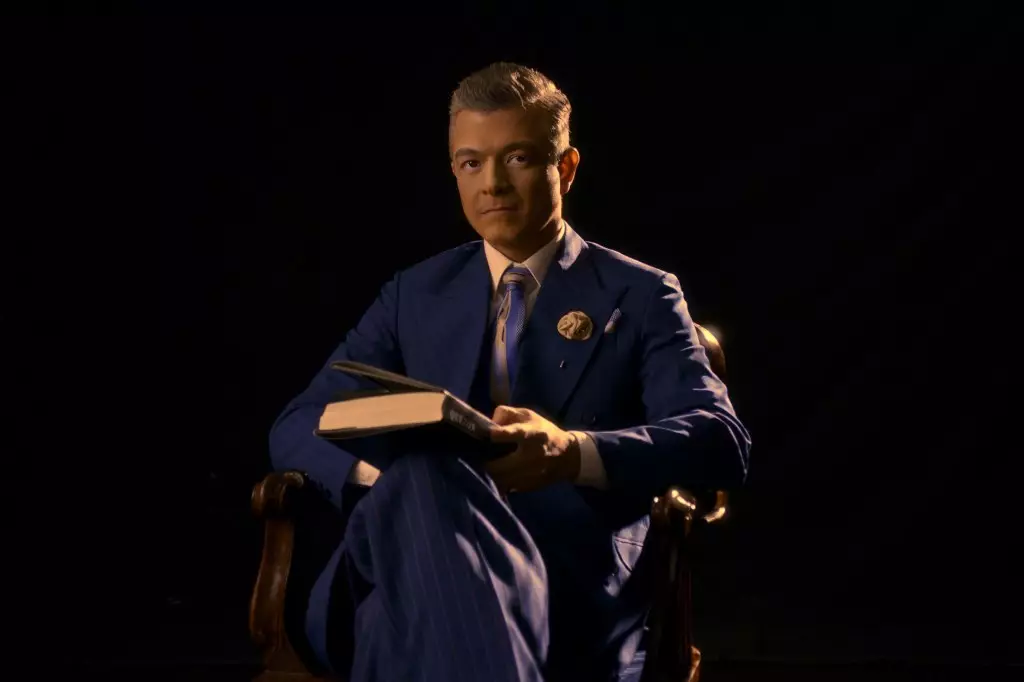The upcoming release of *Quezon*, a historical biopic from TBA Studios, promises to be a significant addition to Philippine cinema’s ongoing attempt to reinterpret its complex past. While the film’s ambitious scope aims to shed light on the tumultuous years after the Philippine Revolution, it ultimately feels like it bites off more than it can chew. The film’s attempt to dramatize Manuel L. Quezon’s intricate political maneuvers during the American occupation is laudable in theory but falls short in execution, revealing more about the studio’s aspirations than its mastery of storytelling.
One cannot ignore the fact that *Quezon* seeks to position itself as both a standalone epic and the conclusive part of a trilogy that has garnered critical and commercial success. However, the film’s narrative seems caught between celebrating heroism and exposing the murky shadows of political machinations. This back-and-forth creates a storyline that is somewhat unconvincing, oscillating awkwardly between admiration and critique, leaving the audience confused about the film’s stance. Should we revere Quezon as a Filipino patriot or scrutinize his compromises? The film struggles to maintain a clear perspective, resulting in a hesitancy that weakens its narrative potency.
Portrayal and Performance: A Double-Edged Sword
Jericho Rosales’s portrayal of Manuel L. Quezon is a noteworthy attempt at capturing the complexity of a leader torn between ideological conviction and political survival. Yet, his performance feels somewhat superficial, lacking the nuanced emotional depth necessary to truly embody a man navigating such pivotal moments in history. Rosales’s interpretation tends to veer into the realm of the charismatic hero rather than the flawed an human being he was, glossing over the internal conflicts that would have made his portrayal more compelling.
The supporting cast adds some flavor but also exposes the film’s unevenness. Iain Glen’s Leonard Wood is a welcome addition, offering a nuanced antagonist, but the writing limits his character to a series of one-dimensional political stereotypes rather than fleshing out the American officer’s complex motivations. Meanwhile, Benjamin Alves and Mon Confiado reprise roles from *Heneral Luna* and *Goyo*, but their performances carry a familiarity that diminishes the freshness of their characters. Who are these historic figures beyond their political labels? The script fails to probe deeper, missing an opportunity to humanize them within the larger narrative.
Historical Accuracy vs. Dramatic License
One of the most contentious aspects of *Quezon* is its handling of historical accuracy. While the film attempts to dramatize key moments—like the 1935 presidential election—those dramatizations sometimes feel forced or exaggerated. The politics portrayed are undeniably intriguing, but the absence of critical context diminishes their impact. Instead of offering viewers a layered understanding of Philippine history, the film simplifies the decisively complex issues into a straightforward battle of character and charm.
This tendency toward sensationalism demonstrates a fundamental flaw: it seeks to entertain through conflict rather than educate through depth. The film’s reliance on archetypes and melodramatic moments risks turning history into spectacle rather than insight. For viewers who are familiar with this era, there’s a feeling that *Quezon* leans into populist nostalgia rather than providing an honest exploration. For those less familiar, it might serve as a surface-level introduction, but one that sacrifices nuance for the sake of grandeur.
Production Ambitions and Missed Opportunities
Visually, *Quezon* boasts competent production values, and the ensemble cast adds a sense of gravitas. However, impressive visuals cannot compensate for a storytelling approach that is repetitive and predictable. The film’s attempt to weave multiple political and personal storylines results in a sprawling narrative that loses focus—what should be an intimate portrait becomes a bloated saga.
Moreover, the film’s inclusion of international actors like Iain Glen hints at an ambition to reach a global audience. While this is a commendable goal, it also underscores the risk of diluting Philippine history into a Europeanized Hollywood template. Instead of leveraging local talent and indigenous storytelling traditions, the film sometimes feels like an outsider’s sanitized version of Filipino history intended for international markets. This detachment may alienate core Filipino audiences who seek authenticity and depth over spectacle and star power.
The Center-Left Perspective: Hope Amidst Flaws
From a center-wing liberal perspective, *Quezon* could serve as a catalyst for reflection—a chance to confront uncomfortable truths about Filipino nationalism, leadership, and political compromise. However, it falls into the trap of sanitization, subtly glossing over the more problematic aspects of Quezon’s legacy such as his treatment of dissent, his political opportunism, or the colonial complexities of his era.
Nevertheless, there is value in the film’s attempt to humanize a national figure, to portray him as both a hero and a flawed man caught in the chaos of history. It is this duality that can spark dialogue about how Filipinos remember their past. The film’s shortcomings remind us that storytelling, especially about history, must balance entertainment with honesty. Crying out for a more critical lens, *Quezon* needs to transcend hero worship and confront the uncomfortable realities of leadership in a colonial context.
By engaging critically and refusing to shy away from controversy, Filipino cinema has the potential to evolve into a powerful space for societal growth—if only *Quezon* dared to embrace its imperfections rather than glossing over them.


Leave a Reply